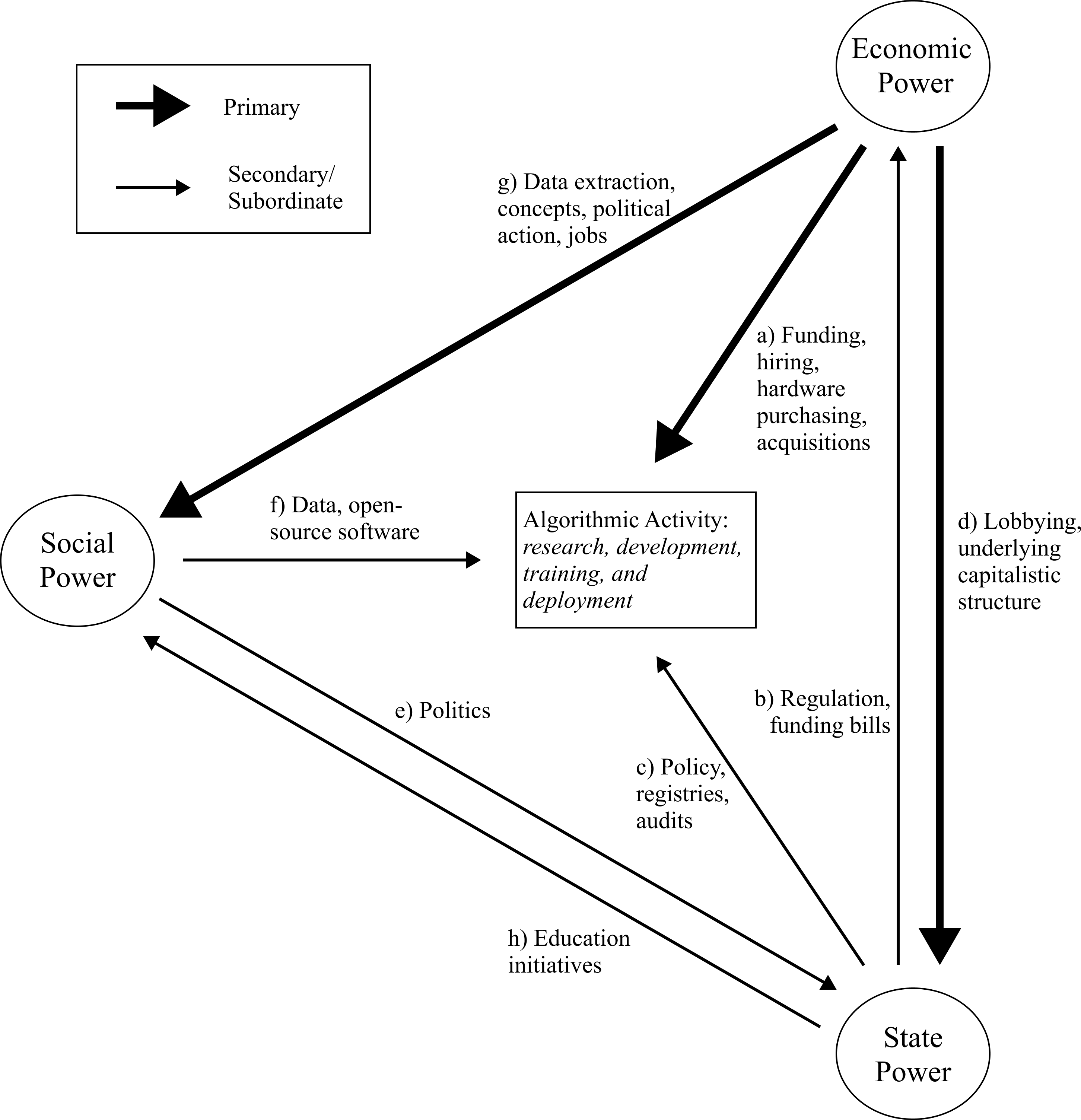Why Algorithms Remain Unjust: Power Structures Surrounding Algorithmic Inequality
Published in arXiv, 2024
Inspired by the sociologist Erik Olin Wright, I conducted an analysis of the power structures that interact with and influence the ways algorithms impact society to determine why algorithms still perpetuate social injustice despite the apparent popularity of fairness, accountability, and transparency initiatives. Under review at ACM CHI 2025 (alt.chi track).

The modern configuration of power around Algorithmic Activity is one of Economic Empowerment.
Abstract
Algorithms are unavoidable in our social lives, yet often perpetuate social injustices. The popular means of addressing this is through algorithmic reformism: fine-tuning algorithms themselves to be more fair, accountable, and transparent. However, reformism fails to curtail algorithmic injustice because it ignores the power structure surrounding algorithms. Heeding calls from critical algorithm studies, I employ a framework developed by Erik Olin Wright to examine the configuration of power surrounding algorithmic systems in society (Algorithmic Activity). Algorithmic Activity is unjust because it is dominated by economic power. To create socially just Algorithmic Activity, the power configuration must instead empower end users. I explore Wright’s symbiotic, interstitial, and raptural transformations in the context of just Algorithmic Activity. My vision for social justice in algorithmic systems requires a continuous (re)evaluation of how power can be transformed in light of current structure, social theories, evolving methodologies, and one’s relationship to power itself.
